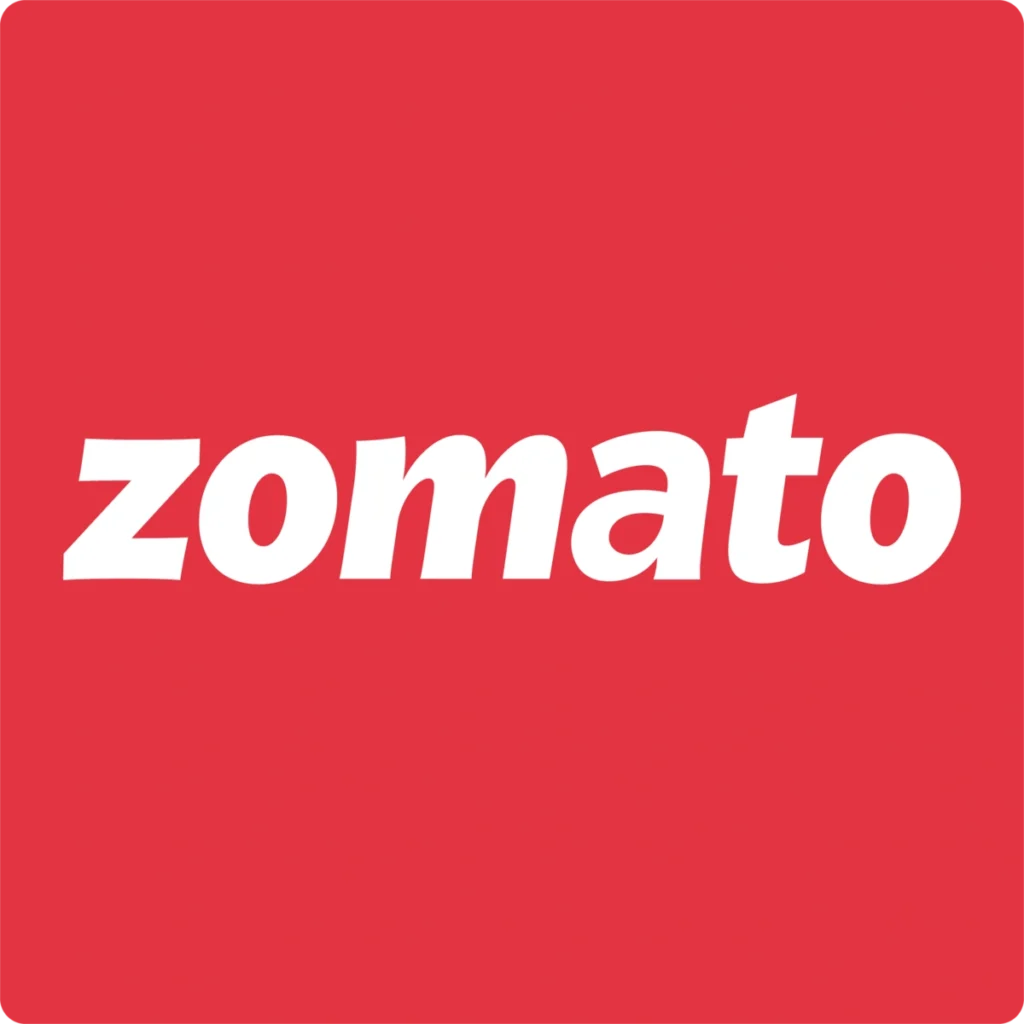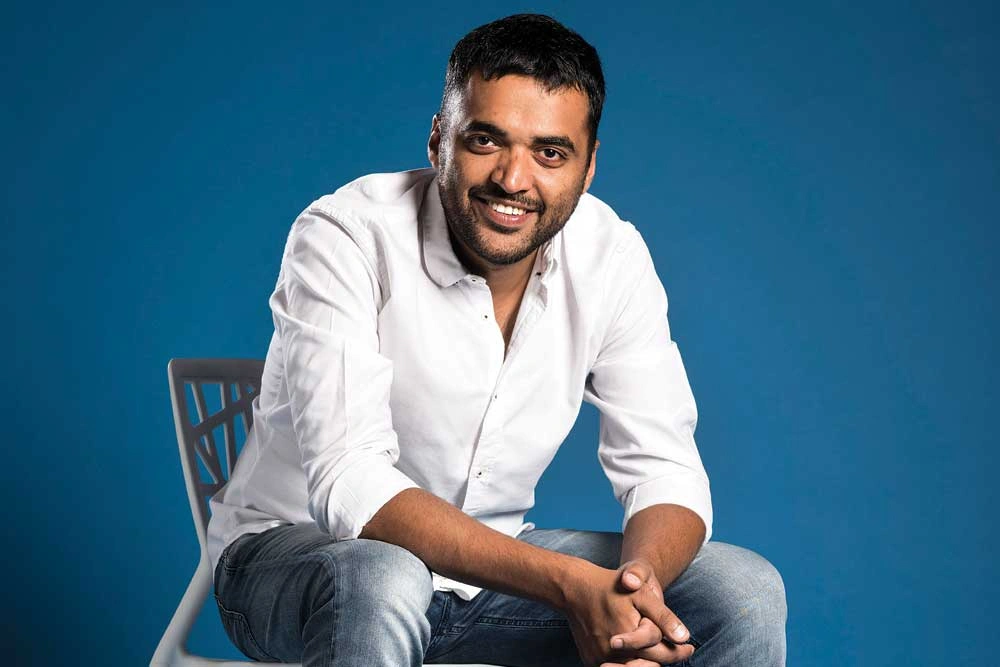Given the rapidly changing landscape that is the vehicle for innovation and growth within India, Deepinder Goyal’s contributions to this continuing narrative cannot be understood as he redefined, in many ways, how a country of 1.4 billion people orders its food. As the co-founder and CEO of Zomato, Goyal’s startup journey is a fascinating tale of turning a brilliant idea – digitizing restaurant menus – into a multi-billion dollar food tech dragon. His visionary leadership has not only built a unicorn but ignited a revolution, ensuring food accessibility and convenience become a cornerstone of modern urban living in India and beyond.
Cut to mid-2025 Zomato is now—and through evolution, adaptation, and exploration—more than a food delivery app, but a story about a publicly traded company that embodies a competitive food ecosystem, transforming to best serve the ever-changing needs of consumers and restaurants. Goyal’s dogged pursuit of scale and subsequent strategic course corrections, combined with an obsessive focus on profitability, have made Zomato a household name in hundreds of millions of homes, while Goyal continues to wrestle with the growing pains of a market coming of age and his own, ambitious multi-brand plan under the recently registered parent company name, Eternal Ltd.

From IIT to Chef’s Anguish
Deepinder Goyal’s impressive intellect was apparent from the very start. An alumnus of the elite Indian Institute of Technology (IIT) Delhi, where he earned a B.Tech in Mathematics and Computing, his academic pedigree helped lay the groundwork of strong analytical and problem-solving skills. After graduating in 2005, he began his professional journey as an analyst at Bain & Company, a global management consulting firm. That time was absolutely transformative, grounding him in different approaches to business, thinking about the market in new ways, and understanding the corporate approach to solving problems. It was here, in the comfort of a corporate cafeteria, that the fire for Zomato started to burn.
Her ‘aha!’ moment was basic but powerful. Deepinder, along with his co-founder and colleague Pankaj Chaddah, were repeatedly irritated by the difficulty of finding menus from nearby restaurants and subsequently time lost waiting in line to order food from their office cafeteria. They understood that an issue that so many struggled with, something annoying but non-life-threatening, could be solved by a simple tech fix. Why not have restaurant menus available online through QR codes?
This seemingly minor annoyance grew into a seed of inspiration: Foodiebay. Their first idea was simple but brilliant – they started by collecting printed menus from all the restaurants near their office in Delhi and uploaded them on the web. This gave their colleagues an immediate, easy-to-access database to pull from, cutting out physical line waiting and an inherent element of chance. This immediate positive response from their peers validated their hypothesis. There was a true demand for an organized, digital repository of restaurant information. This bootstrapped endeavor, driven entirely by personal savings and grit, was the small start of what would later grow into an apartment empire.
You’re On Your Own Rebranding and Initial Growth
Foodiebay made a much-needed rebranding in 2010, surfacing as Zomato. The name Zomato was selected for its crisp, catchy sound and worldwide brand potential — ditching the more generic sounding “Foodiebay” moniker and foreshadowing a bigger, bolder vision. The company’s vision grew larger than just building digital menus, pivoting them towards millions of diners discovering restaurants, users curating the first restaurant discovery platform with reviews, photos, and ratings, and becoming the online resource of choice for diners everywhere.
Early monetization tactics focused on selling restaurant advertising and shoving lists of restaurants up to premium placement. At the center of all of these issues was still data collection at scale. Meanwhile, Deepinder and Pankaj, along with a growing team of data crunchers and advocates, hit the streets literally, walking restaurant-heavy blocks, collecting menus, and snapping pictures. This meticulous, on-the-ground mapping campaign laid the groundwork for the database that allowed Zomato to jumpstart its competitive advantage. Convincing restaurants, most of which were still legacy, go-to-meet-people-at-the-corner brick-and-mortar establishments, of the importance of having a digital-first strategy was yet another uphill battle.
One of the most defining moments in Zomato’s initial odyssey came in 2011 when it closed its first significant institutional investment led by Info Edge (India) Ltd., the parent of Naukri.com. Unlike other entrepreneurs who had experienced the dotcom bust, Sanjeev Bikhchandani, founder of Info Edge, recognized the long-term potential in Zomato and invested multiple times early on, providing the capital Zomato needed to aggressively expand. This collaboration was key, providing more than money, but strategic advice and credibility.
Driven by the confidence provided by this investment, Zomato soon launched into a rapid and expansive international expansionary chapter. They quickly expanded into the UAE, UK, South Africa, and Sri Lanka, eventually reaching over 24 international markets, often through the acquisition of local restaurant listing and discovery platforms. This aggressive global push brought a different set of challenges as well—from implementing technology in vastly different culinary cultures to navigating unique regulatory environments to competing with fierce local competition. Whether they were international ventures that fared successfully or those that eventually shut down, these experiences became invaluable in the process of preparing Zomato for its long-term path.
The Pivot to Delivery: A True Game-Changer
Zomato had already proven its mettle as a challenger in the restaurant discovery space, the worldwide explosion of online food delivery was a different opportunity entirely. Then, around 2015-2016, Zomato took the audacious and brilliant strategic gamble to pivot to food delivery. This ambitious move would not come without significant internal debate and external skepticism, as it transformed Zomato’s core business model from an information platform to a logistics-heavy enterprise.
Entering the food delivery segment meant encountering a whole new world of challenges to tackle:
Sustainable Logistics Network Developing a dynamic last-mile delivery space that is successful, fast, and eco-friendly.Rider Management: Recruiting, training, and managing a cadre of delivery partners that fill up a smartphone. Technology is the backbone of any microtransit solution, creating advanced routing algorithms, and ensuring real-time tracking and alerts, along with easy-to-use payment gateways. Managing millions of orders a day and relieving customer concerns instantaneously.
The Indian food delivery market was already starting to boil over with fierce competition from major players like Swiggy and other regional rivals, resulting in a heated “food war.” Zomato fought tooth and nail, taking advantage of its already-established ties with restaurants and its user network. One of their biggest strategic plays was buying out Uber Eats’ India operations in 2020, further consolidating Zomato’s market share and eliminating competition. This acquisition showcased Goyal’s aggressive, but strategic, attitude toward achieving market domination.
In addition to evolving their delivery services, Zomato began to innovate through subscription models. The launch of Zomato Gold (subsequently Zomato Pro and then re-launched as Gold with a few different perks) promised users perks such as free meals/drinks and then free delivery and discounts on dining-in. These subscription-based business models were designed to improve user retention while creating predictable revenue.
Away from services geared towards consumers, Zomato grew into Hyperpure, a B2B service started in 2019 that delivers fresh, hygienic, and high-quality ingredients and kitchen products to restaurants. This vertical was intended to focus on a major industry pain point for restaurants – the inconsistency and quality of sourcing – while building a synergistic ecosystem with its core delivery operation. Another new focus was their cloud kitchen model, using Zomato’s data intelligence to assist restaurants in streamlining their operations.
IPOs trigger a whole new level of scrutiny from various stakeholders. Charting a Course for the New Era

The long-term result of Deepinder Goyal’s vision and Zomato’s dogged ambition was felt in 2021 when the company made its long-awaited public debut on Indian stock exchanges. Zomato’s IPO was a watershed moment, both for the company and for the burgeoning Indian startup ecosystem, as one of the first Indian home-grown tech unicorns to go public. The IPO generated huge investor demand, with the issue being highly oversubscribed and the stock debuting at a huge premium.
The saga since its IPO has served as proof not only of the volatility of public markets but the changing climate for technology companies. Soon after, Zomato’s stock would, like many tech companies across the globe, experience a large correction during the “tech winter” of 2022-2023. This era was characterized by a laser focus on profitability, a requirement that private market investors frequently forgave for the sake of growth. Deepinder Goyal confidently and repeatedly talked about the company’s laser focus on improving unit economics and delivering sustainable profitability at overall and individual business line levels, and his desire to deliver long-term value to shareholders.
Recent financials like their Q4 FY25 (January-March 2025) consolidated net profit down 77.71% YoY even with a 115% revenue increase highlighting the new difficulty of maintaining growth while managing soaring expenses. Goyal’s hands-on leadership during this phase proved to be pivotal, as he’d started directly overseeing the food delivery business only after CEO Rakesh Ranjan transitioned out of the role in May 2025, marking a more direct, renewed emphasis on the core segment from “a fresh perspective. Illustration by Ivo M Prokopius on Shutterstock
One of the more strategic and daring moves at this time was the 2022 acquisition of Blinkit (then Grofers), a quick commerce (grocery delivery) platform. This ₹4,447 crore all-stock deal surprised the investor community at first, as they doubted the strategic fit and its effects on Zomato’s journey towards profitability. Goyal was unapologetic about the deal, defending it on the grounds of Zomato’s existing logistics network achieving “strategic synergy” and quick commerce’s “huge potential”. As of mid-2025, Blinkit is off to a strong start, making up a substantial portion of Zomato’s total revenue and going into contribution positivity, proving Goyal’s strategic long game. So, while Blinkit is burning cash aggressively expanding its dark stores and hoping to reach 2,000 by December 2025.
Besides changes in the context of the first half of 2025, Zomato has further led improvements internally. For instance, Goyal called the shutdown of Zomato Quick (10-minute food delivery service) and Zomato Everyday (homestyle meals) projects in May 2025, saying there was no obvious way to make them profitable that didn’t hurt customer experience. Third, this decision highlights the new administration’s policy of practical portfolio management. Additionally, Zomato has adjusted its restaurant delivery fee structure to include new distance-based surcharges on orders over ₹150, specifically designed to improve order-level profitability. The company further delisted about 19,000 restaurants as failing brands, hygiene-quality mimic brands, or otherwise misleading listing, a decision which hurt quarterly order growth. The firm argued it is necessary to build long-term consumer trust and brand quality gatekeeping.
Deepinder Goyal went further, publicly denouncing and contradicting these viral allegations of Zomato losing market share and facing internal turmoil in April 2025, calling them “abhorrent lies” and reiterating the company’s dominating market position and ethical employee treatment. The planned shareholder approval in early 2025 to change the parent company’s name to Eternal Ltd. marks Zomato’s transformation into a diversified house of brands. The initial plan has Zomato and Blinkit as its main engines. This further establishes Goyal’s long-term multi-brand vision. His personal commitment is still on display, as he has already pushed his salary waiver out to 2026 to keep the company focused on long-term financial health.
Deepinder Goyal Cofounder and CEO of Zomato Leadership Vision
Deepinder Goyal’s leadership style produced a company that many say is direct, data-driven, and fiercely executed to the core. For his often aggressive pursuit of market leadership, for his willingness to make daring strategic pivots (like delivery or buying Blinkit), and for his faith in the long-game vision. He is an intensely active social media user, known for his colorful and sometimes irreverent commentary on Zomato’s flywheel, the hotbed of the startup ecosystem, or most recently, his own heart surgery, humanitarianism, and self-improvement, making him an accessible and recognizable hero to millions. He’s famous for his micro-management, down to personally overseeing entry-level hirings in some cases, emblematic of his conviction that you should start with a solid base. His professorial, rational approach to decision-making—allegedly influenced by titles such as “The Art of Thinking Clearly”—highlights his preference for rational, objective, data-driven strategies.
His vision for Zomato goes well beyond food delivery. Today, deep into the core of the company’s long-term mission, he wants to create an all-encompassing “food operating system” or “food ecosystem” for India that ties together restaurants, delivery partners, and consumers in a much more interconnected, more efficient, amazing way. This powerful but holistic approach extends beyond delivery to include restaurant management tools, ingredient sourcing (Hyperpure), and using data to optimize every aspect of the food value chain. The continued wholesale incorporation of Eternal Ltd. as the holding company makes it even clearer, creating a focus on this idea of a consumer internet-focused diversified conglomerate.
Outside the corporate sphere, Goyal has become a highly influential player in the Indian startup ecosystem, frequently mentoring younger entrepreneurs and campaigning for policies that promote innovation. From adding hundreds of thousands of jobs for delivery partners to helping millions of restaurants—from corner shops to national chains—grow their businesses by digitizing their supply chains and reaching more customers, Zomato’s success under his leadership has been transformative.
A Culinary Culture Cut from Flavor and Forward-Thinking Fabrics
Deepinder Goyal’s journey with Zomato is a truly inspiring story of entrepreneurial audacity, tactical genius, and a relentless pursuit to make a meaningful impact on everyday challenges. From reading menus in a basement to running the largest, publicly traded, multi-dimensional food tech conglomerate under the Eternal Ltd. umbrella, he has completely changed the way India interacts with food.
Also check:- Revenue growth of 15-17% expected in Indian defence sector this fiscal year: ICRA
Zomato’s secret sauce, especially for those who aren’t serving food in India, is its constant innovation and incredible ability to shift as quickly as the consumers they serve adapt to new behaviors and market trends. These recent strategic recalibrations, including the shuttering of non-core programs and a re-envisioning of priorities and lenses towards profitability and core competencies, paint the picture of a company coming into its own, with an experienced captain at the helm. One thing is certain — With Deepinder Goyal at the helm as a visionary leader, and with Zomato’s first-mover advantage all but sewn into its ubiquitous scarlet threads, the move it makes will still carry the most weight, and change the lives of millions of customers all around the world. His story is an inspiration that shows that with faith and dogged determination, the most basic concept can blossom into an enormous triumph, transforming an industry for all time.

